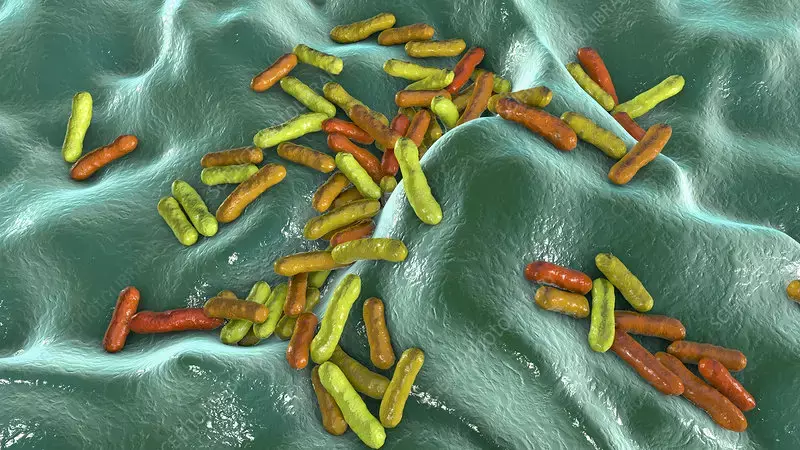- Home
- Medical news & Guidelines
- Anesthesiology
- Cardiology and CTVS
- Critical Care
- Dentistry
- Dermatology
- Diabetes and Endocrinology
- ENT
- Gastroenterology
- Medicine
- Nephrology
- Neurology
- Obstretics-Gynaecology
- Oncology
- Ophthalmology
- Orthopaedics
- Pediatrics-Neonatology
- Psychiatry
- Pulmonology
- Radiology
- Surgery
- Urology
- Laboratory Medicine
- Diet
- Nursing
- Paramedical
- Physiotherapy
- Health news
- Fact Check
- Bone Health Fact Check
- Brain Health Fact Check
- Cancer Related Fact Check
- Child Care Fact Check
- Dental and oral health fact check
- Diabetes and metabolic health fact check
- Diet and Nutrition Fact Check
- Eye and ENT Care Fact Check
- Fitness fact check
- Gut health fact check
- Heart health fact check
- Kidney health fact check
- Medical education fact check
- Men's health fact check
- Respiratory fact check
- Skin and hair care fact check
- Vaccine and Immunization fact check
- Women's health fact check
- AYUSH
- State News
- Andaman and Nicobar Islands
- Andhra Pradesh
- Arunachal Pradesh
- Assam
- Bihar
- Chandigarh
- Chattisgarh
- Dadra and Nagar Haveli
- Daman and Diu
- Delhi
- Goa
- Gujarat
- Haryana
- Himachal Pradesh
- Jammu & Kashmir
- Jharkhand
- Karnataka
- Kerala
- Ladakh
- Lakshadweep
- Madhya Pradesh
- Maharashtra
- Manipur
- Meghalaya
- Mizoram
- Nagaland
- Odisha
- Puducherry
- Punjab
- Rajasthan
- Sikkim
- Tamil Nadu
- Telangana
- Tripura
- Uttar Pradesh
- Uttrakhand
- West Bengal
- Medical Education
- Industry
Special silver carboxylate coating on implants may help decrease spinal SSI due to C. acnes

Providence, RI, USA: D.R. Garcia et al. et al have found in a study that - silver carboxylate-doped titanium dioxide-polydimethylsiloxane (TiO2-PDMS) coating can decrease C. acnes adherence and biofilm formation on PEEK and four other commonly used spinal implant materials, stainless steel, cobalt chromium, titanium, and titanium alloy. This decreases spinal SSI secondary to C. acnes infection especially in procedures with instrumentation.
Cutibacterium acnes (C. acnes) is a gram-positive facultative anaerobe found in the deep sebaceous follicles of the skin on the shoulder and back. C. acnes has been increasingly recognized as a pathogen in spinal surgical site infection (SSI) especially in the presence of instrumentation.
The authors compared the adherence of C. acnes over 24 hours between uncoated, 95:5 TiO2 to PDMS ratio with 10x silver carboxylate coating and a 100% silver carboxylate coating on each implant material, which were uniformly saw cut and sterilized.
Implants were then subjected to scanning electron microscopy (SEM) and confocal scanning laser microscopy (CSLM).
Samples were coated using 95:5 TiO2-PDMS 10x silver carboxylate, 100% silver carboxylate, or left uncoated. C. acnes was applied onto the samples and allowed to adhere for periods of 4, 8, 12, 16, or 20 hours.
Nonadherent bacteria were then washed from the samples. These samples were then allowed to continue incubating for a total of 24 hours.
SEM and confocal laser scanning microscope were used to visualize all samples for the presence of biofilm and quantification of C. acnes adherence at each time point.
The observations of the study were –
• The 95:5 TiO2-PDMS 10x silver carboxylate coating was able to significantly decrease C. acnes adherence on PEEK after 8, 12, 16, and 20 hours of adherence.
• No statistical difference was found between the 95:5 TiO2-PDMS 10x silver carboxylate coating and the 100% silver carboxylate positive control.
• It was observed that extensive C. acnes biofilm formation on uncoated PEEK, but none on PEEK coated with either the 95:5 TiO2-PDMS 10x silver carboxylate or 100% Ag coating.
• No biofilm formation was observed on stainless steel, cobalt chromium, titanium, and titanium alloy coated with 95:5 TiO2-PDMS 10x silver carboxylate or 100% silver coating.
The authors concluded that - A 95:5 TiO2-PDMS 10x silver carboxylate coating decreases C. acnes adhesion and prevents biofilm formation on PEEK and other common orthopedic implant materials.
Further reading:
Silver carboxylate-doped titanium dioxide polydimethylsiloxane coating decreases Cutibacterium acnes adherence and biofilm formation on polyether ether ketone
D.R. Garcia et al. / The Spine Journal 22 (2022) 495−503
https://doi.org/10.1016/j.spinee.2021.09.011
MBBS, Dip. Ortho, DNB ortho, MNAMS
Dr Supreeth D R (MBBS, Dip. Ortho, DNB ortho, MNAMS) is a practicing orthopedician with interest in medical research and publishing articles. He completed MBBS from mysore medical college, dip ortho from Trivandrum medical college and sec. DNB from Manipal Hospital, Bengaluru. He has expirence of 7years in the field of orthopedics. He has presented scientific papers & posters in various state, national and international conferences. His interest in writing articles lead the way to join medical dialogues. He can be contacted at editorial@medicaldialogues.in.
Dr Kamal Kant Kohli-MBBS, DTCD- a chest specialist with more than 30 years of practice and a flair for writing clinical articles, Dr Kamal Kant Kohli joined Medical Dialogues as a Chief Editor of Medical News. Besides writing articles, as an editor, he proofreads and verifies all the medical content published on Medical Dialogues including those coming from journals, studies,medical conferences,guidelines etc. Email: drkohli@medicaldialogues.in. Contact no. 011-43720751


